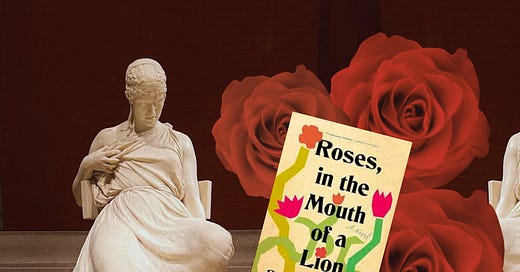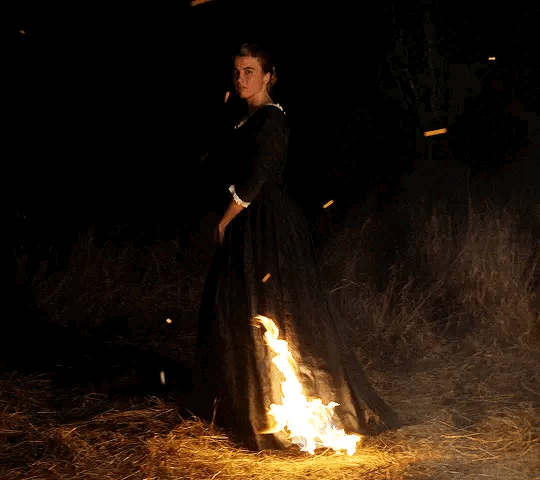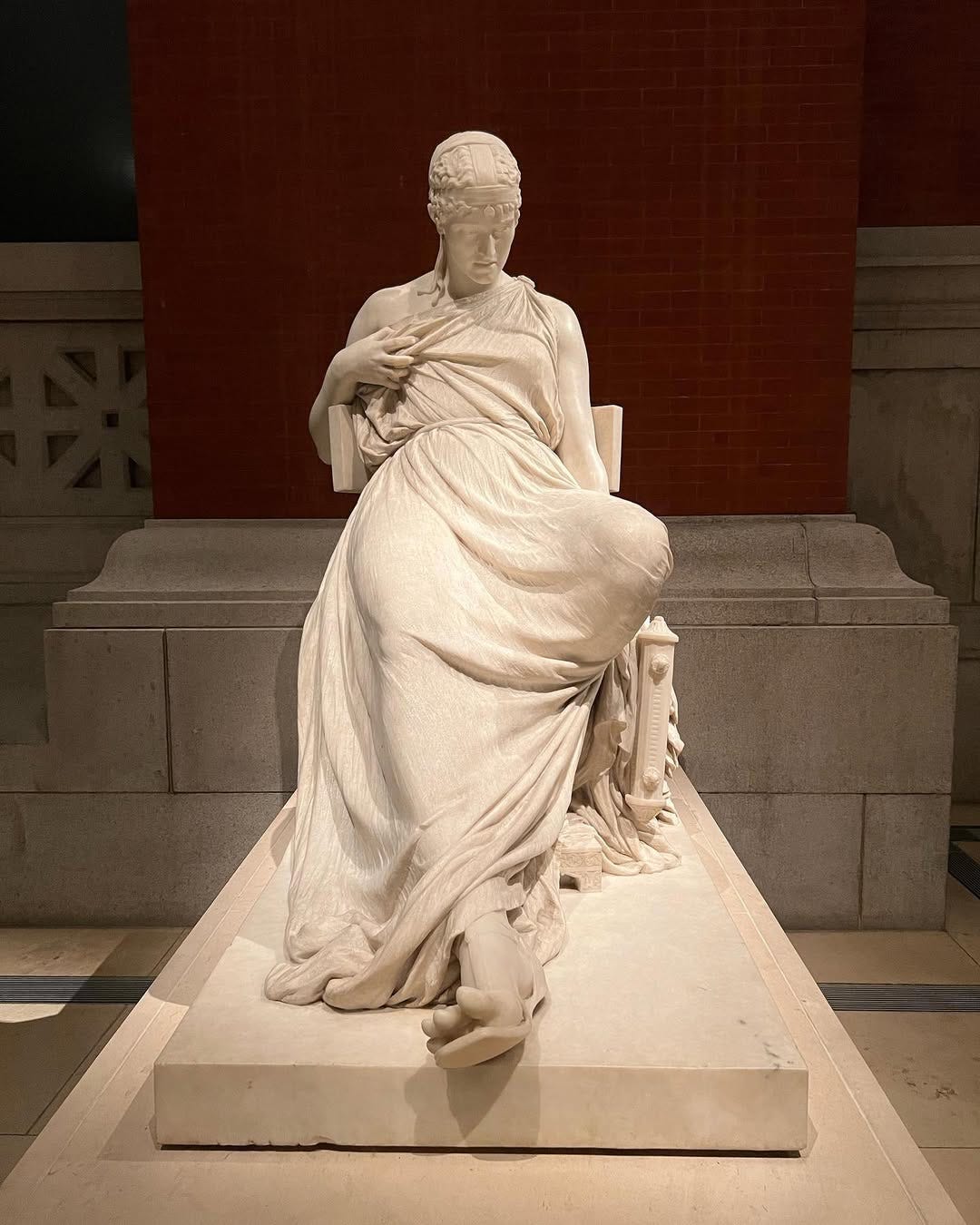Sapphic Read: Roses, in the Mouth of a Lion — Bushra Rehman
Faith, girlhood, the mother wound, and burning queer desire follow a young Pakistani-American girl in 1980s New York City.
Hellfire is both a cleansing and a punishment. Razia learned this before she was old enough to sin.
But when she and her friends stumble upon a retro nudie mag, Razia becomes entranced by a brown-eyed, full-bushed beauty on the page.
Despite her fascination, she knows this is Guna, sinful. In an act of both fear and love, she burns the magazine.
“I walked to the garbage can and looked down at my woman… Her body was being covered with smoke, and I knew her spirit was being lifted so she could fly clothed in fire all the way to Heaven.”
This book had a grip on me from the first page. Literally one paragraph in, I said out loud, “Thank God.” Finally some fantastic fucking writing.
Roses, in the Mouth of a Lion follows Razia, a young Pakistani-American Muslim in 1980s Queens, NY, from early childhood to mid-teens. The prose is both delicate and tough — capturing the tension between the magic of girlhood and the damages of oppression and discrimination. And while her religion often provides a safe haven, it also enforces patriarchy.
“I wondered sometimes what it would have been like if girls could go to our masjid. Would we be able to transform the darkness of our anger into gold, our mistakes into light?”
Razia’s queerness and her Muslim faith are as intertwined as they are in conflict. Both are crucial to her being. As are her identities as both Pakistani and American, which the author weaves together with the ease of lived experience.
“I followed the trunk of the old oak deep into the earth where we came from. Its roots spread so far, I imagined them stretching through Corona all the way to Pakistan.”
The writing is both modern and nostalgic, and it grows up as Razia does. She spends most of her early days running around with her best friend, picking grapes and spying on their neighbors.
“Then we pulled on the vines like hair and felt the rain run down our cheeks, soak our clothes, our salwar kameez. It always felt cold, sweet, and green, the air around us thick liquid, about to burst like a sneeze.”
Against all odds, cherry trees, grapevines, and roses bloom from chain link fences and concrete. These wild motifs give a glimpse into the out-of-place nature that Razia recognizes internally.
“In the mountains of Pakistan, everything grew wild, and it was fine and beautiful. My parents didn’t realize or accept that here, nature had to be tamed.”
Drawn throughout the story is the complex relationship between Razia and her mother. As she experiences postpartum depression with Razia’s little sister, we witness the painful estrangement from her life Pakistan.
“She’d become attached to the phone, as if it was another limb, as if she was trying to re-create a village in our house with her calls back home.”
Her mother carries the burden of keeping her culture alive in a fragmented country. Her love is harsh but her protection is fierce. Her laughter, though rare, is contagious. To Razia, she is both a pillar of safety and a harrowing reminder of the life she is expected to lead.
“I had a sudden irrational desire to hug her, but there was so much distance between us. My birth had been only the beginning of our separation, the first time I was cut loose.”
In her early teens, Razia makes a new best friend. Taslima introduces her to gradual acts of disobedience, skipping out on prayer and cutting their hair. Her older sister teaches them about the meaning of feminism. She is the first girl in their community who dares to go to college before getting engaged. As the threat of a forced marriage to a Pakistani man begins to encroach, Razia becomes more and more resistant of her culture’s traditions.
And then she meets Angela, a wild-haired brunette (hello porn mag callback) and feels that instant connection once again. Slacking off school and listening to records, the girls embark on a mutual obsession.
On a trip to the Met, they admire a statue of Sappho. For the first time, Razia is emboldened to speak the word that has been weighing on her: Lesbian.
“The word hung over us, and a charge flowed through the air. ‘She’s beautiful. Like you,’ Angela said quietly. No one had ever told me I was beautiful before. I leaned into Angela, and she leaned into me. We became two wood nymphs intertwined at Sappho‘s feet, freezing into place like marble figurines.”
With Angela, Razia finds herself welling up with repressed emotion, feeling more true to herself than ever, and also isolated in an entirely new way. How can this white girl ever understand her family? How can her family ever understand these feelings?
I’ll stop the recap here with an urging plea that you find out for yourself. There is so much richness and nuance to this story that would be impossible to capture in an essay.
The intricate female relationships — envy, love, and admiration among young girls — diplomacy, shared tradition, and resentment between the aunties. Growing up and understanding the older generation in a new way. And the food, oh my god, prepare to be hungry.






just read this one. :)
you make this sound so beautiful!!!! i can't wait to read it!